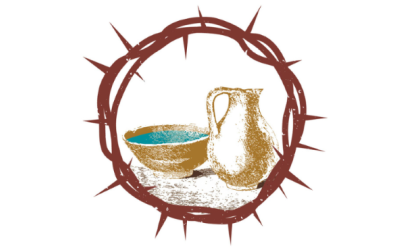The Word was told to hush the rowdy crowd, their off-key songs of praise that followed himand mingled with the rock dust raised by tramping feet, percussive sandals slapping dirt so that to breathe was to inhale hosanna. With a distant look he said, “Into the silence (should they cease), the rocks themselves would rouse, would raise the cry.” Hyperbole, as he was known to use, the rabbi never one to pass a teaching moment by, but—more than merely figurative speech—did Jesus, saying so, evoke the rocksthat spoke along the path of Israel?Did he remember then a pillow turned to pillar where the angels had passed by, the tablets etched by God’s own hand that cried the law to rocky-hearted folks, the Jordan’s boulders pried from under priests then piled twelve high, the slate slab Samuel declareda monument to Yahweh’s aid in war?When human voices faded, still the raised-up boulders stood as words without a word.They spoke, they testified, and, yes, they sangabout the deeds of God—a river-splitting, heaven-dwelling, law-imparting God. Perhaps, as well, the Word remembered thenthe bloodied uncut stones of altars raised for sacrifice, which told the story of sin’s cost in every bright-red drip that droppedinto the cracks and pooled in crevices,persistent lullaby of life through death.If that grand choir of stones sang out to himamid procession’s brief cacophony,did Jesus hear as well the soloist’s deep breath and smile to know there was a stone aboutto offer rumbled, rolling gloria? About to start the final movement ofthe opera by crying out to allthe grief-choked world in endless echo: Love’sredeeming work, “He is no longer here!”



